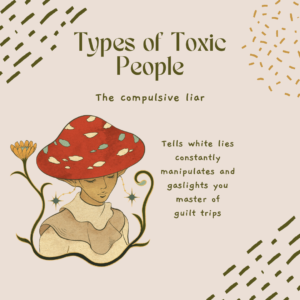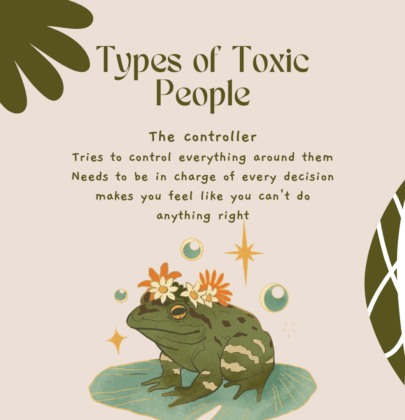Disengage. Ignore. Give them no oxygen.
According to the Mayo Clinic: “Narcissistic personality disorder is a mental health condition in which people have an unreasonably high sense of their own importance. They need and seek too much attention and want people to admire them. People with this disorder may lack the ability to understand or care about the feelings of others.”(Mayo Clinic )
If you ever have the misfortune of being involved with such a person. Run.
Things to look out for that indicate this type of personality – some of these I know from personal experience interacting with such personalities, other indicators come from well-regarded research:
- They have an unreasonably high sense of self-importance and require constant, excessive admiration (Mayo Clinic);
- Controlling behaviour (trying to tell you what to wear or what not to wear, isolating you from friends and/or family);
- Consider themselves superior to everyone around them;
- Manipulative behaviour. “when a person uses controlling and harmful behaviors to avoid responsibility, conceal their true intentions, or cause doubt and confusion. Manipulation tactics, such as gaslighting, lying, blaming, criticizing, and shaming, can be incredibly damaging to a person’s psychological well-being” Very Well Health
- Throw temper tantrums to get their own way;
- Self aggrandizement – make themselves sound important, even when they are not;
- Be critical of everyone else;
- Take advantage of other people;
- Lie to get what they want – literally, they will lie about anything to get their own way;
- Belittle other people to make themselves feel superior (Mayo Clinic)
Often narcissists suffer crippling low self-esteem (even when aiming to appear superior), they are riddled with insecurities and often self-loathing.
They have secret feelings of insecurity, shame, humiliation and fear of being exposed as a failure. (Mayo Clinic)
There is a common misconception that narcissists target weaker personalities in order to control and damage them. However, a narcissist will often target intelligent and emotionally strong people, they see it as a challenge. If they can control, subdue and damage the self-esteem of a strong person, then the narcissist feels better about themselves. As if they have confirmed their perceived “superiority.”
These people need treatment, yet they are unlikely to recognize their own behaviour. They lack insight and self-awareness and they blame everyone else for their problems, they try to make themselves out to be the victim. Literally. They never acknowledge that they may be in the wrong and they never apologize for poor behaviour.
On a final note, this is what the Mayo Clinic has to say:
“People with narcissistic personality disorder may not want to think that anything could be wrong, so they usually don’t seek treatment. If they do seek treatment, it’s more likely to be for symptoms of depression, drug or alcohol misuse, or another mental health problem. What they view as insults to self-esteem may make it difficult to accept and follow through with treatment.”
That is really sad. Sad for the narcissist as they desperately need treatment and, in spite of their damaging behaviour, they are often depressed, moody and unhappy and suffer lifelong misery. Sad for the people that unfortunately get entangled with a narcissist as they will be emotionally damaged by the encounter.
Unless you are particularly mentally strong, recognize the behaviour and take action to keep yourself safe. Run. Run and don’t look back. Disengage. Ignore. Give them no oxygen.

controlling behaviouremotional abuseemotional damageemotional wellbeingmental wellbeingnarcissistnarcissistic personality disordertoxic peopletoxic relationships
).


